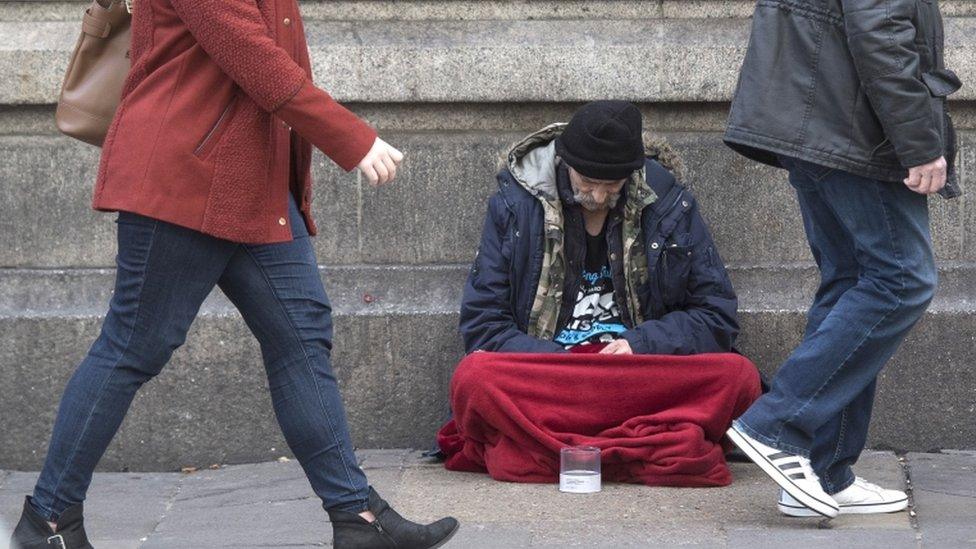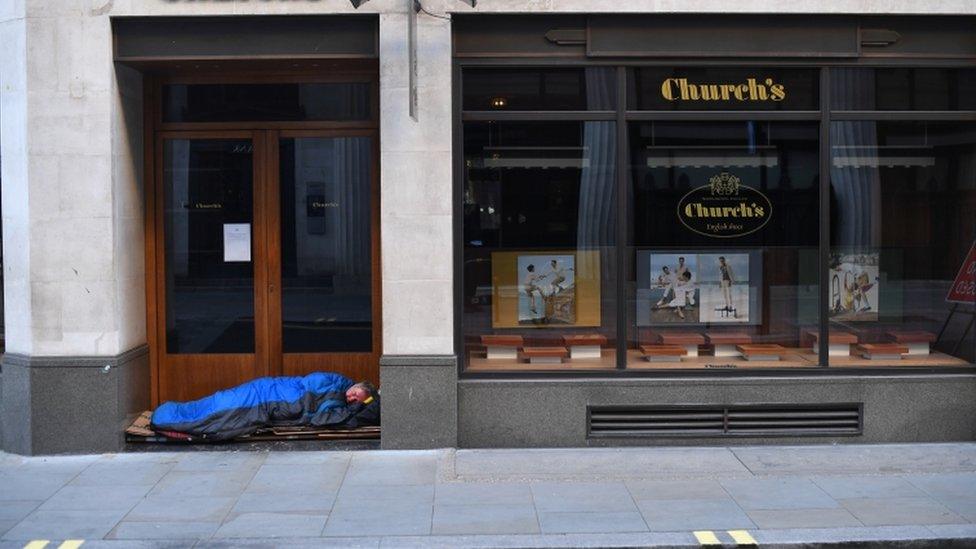Stop treating rough sleepers as vagrants, say MPs
- Published

MPs from across the political spectrum have argued it is time to decriminalise rough sleeping and begging to help deal with the UK's homelessness crisis.
They want the Vagrancy Act, external of 1824, which is still in force, to be repealed as soon as possible.
Tory MP Nicki Aiken said it was no longer "fit for purpose" and Labour's Thangam Debonnaire argued the homeless needed "assistance, not arresting".
The government said it agreed the legislation's time had "gone".
Anyone convicted under the Vagrancy Act faces a fine of up to £1,000 and gaining a criminal record.
The legislation - which refers to people sleeping in carts and wagons - initially carried a penalty of up to a month's hard labour.
In February, Housing Secretary Robert Jenrick told MPs the act should be "consigned to history".
And. in 2019, the BBC obtained data showing that arrests under it had halved between 2016 and 2018.
During a debate in Parliament's Westminster Hall, Ms Debonnaire, the shadow housing minister, said the homeless "need assistance, not arresting" and that the UK required a "mass house-building programme".
Liberal Democrat MP Layla Moran said "the price of inaction is high" and she was "saddened" that Mr Jenrick had yet to commit to a timetable for repealing the act.
"The Vagrancy Act is no longer fit for purpose," said Ms Aiken, adding that it did not "deal with any issues around rough sleeping in the 21st Century".
She said councils and charities "cannot be expected to put in place the services that are required" to help homeless people "without long-term funding".

In response, housing minister Eddie Hughes described the causes of rough sleeping as "complex and multifaceted".
He said the government had committed £433m to creating 6,000 homes for rough sleepers, and it "wholeheartedly" agreed it was "time to reconsider the Vagrancy Act".
"Its time has been and gone," Mr Hughes added.
But a review into the legislation had "been knocked off course" by a change of prime minister and general election in 2019 and the global pandemic.
Mr Hughes said he was "confident" that in due course "progress will be able to be made".